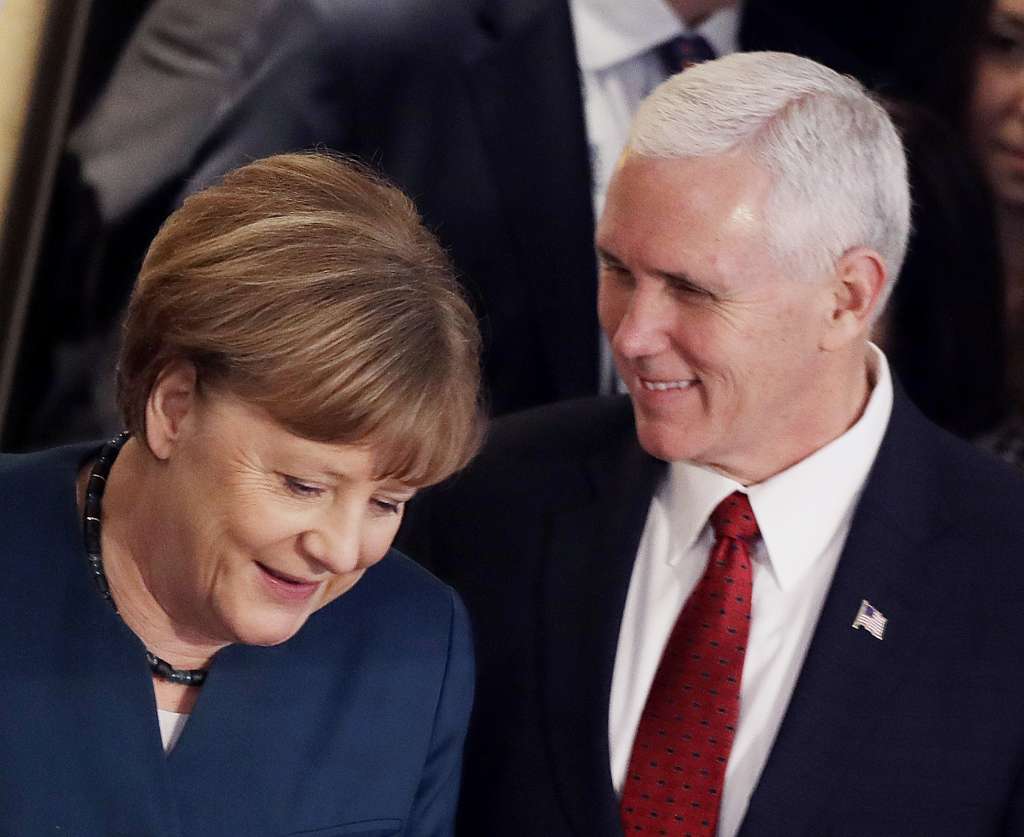U.S. Vice President Mike Pence on Saturday sought to reassure European allies, including German Chancellor Angela Merkel, by pledging an “unwavering” commitment to transatlantic ties.
Capping a week of whirlwind diplomacy by American officials who have descended on Europe to calm nerves rattled by President Donald Trump, Pence underlined Washington’s devotion to its old friends.
“The United States is and will always be your greatest ally. Be assured that President Trump and our people are truly devoted to our transatlantic union,” he told European leaders including Merkel at the Munich Security Conference.
“The promise to share the burden of our defense has gone unfulfilled for too many, for too long and it erodes the very foundation of our alliance,” he warned, stressing that “the time has come to do more”.
At the same time, he did not go further and threaten, as Trump had done, to walk away if the allies failed to pay their way.
The U.S., he said, will boost defense spending significantly, “to defend our nation and our treaty allies from the known threats of today and the unknown threats of tomorrow”.
“We will meet our obligations to our people to provide for the common defense, and we’ll continue to do our part to support our allies in Europe and in NATO,” he said.
Trump’s contradictory remarks on the value of NATO, skepticism of the 2015 deal to curb Iran’s nuclear ambitions and an apparent disregard for the future of the European Union have left Europe fearful for the seven-decade-old U.S. guardianship of the West.
While the audience listened intently at the conference, Pence received little applause beyond the warm reception he received when he declared his support for NATO.
European officials told Reuters in Munich there was still doubt about the direction of the Trump administration,
particularly after U.S. Senator John McCain told the conference on Friday the president’s team was “in disarray.”
Merkel on Saturday warned countries not to retreat from the international cooperation which she says is the only way to solve global problems.
“In a year in which we see unimaginable challenges we can either work together or retreat to our individual roles. I hope that we will find a common position,” she said.
This includes working not only with Western partners, but also with Russia if possible and if Moscow once again respected the sovereignty and territorial integrity of other states such as Ukraine, she said.
She said it was “regrettable” that Europe had not managed to reach a stable relationship with Russia over the last 25 years.
“I will not give up on finding a way for better relations with Russia despite our different views on many questions,” Merkel added.
